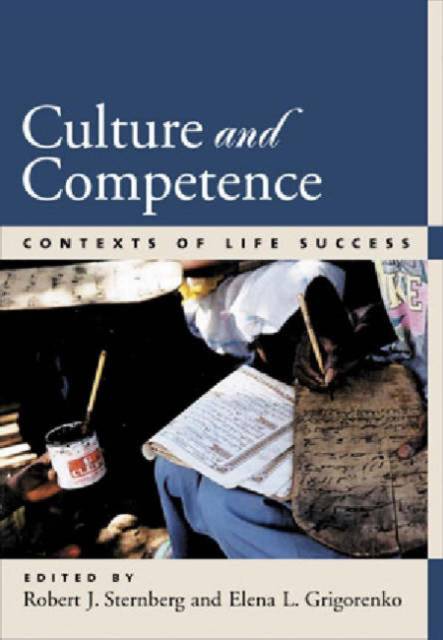
- Afhalen na 1 uur in een winkel met voorraad
- Gratis thuislevering in België vanaf € 30
- Ruim aanbod met 7 miljoen producten
- Afhalen na 1 uur in een winkel met voorraad
- Gratis thuislevering in België vanaf € 30
- Ruim aanbod met 7 miljoen producten
Zoeken
Culture and Competence
Contexts of Life Success
Robert J. Sternberg, Elena L. Grigorenko
Hardcover | Engels
€ 35,45
+ 70 punten
Omschrijving
Many ideas about competency date back to the early 20th century when the technologies of ability and achievement testing were first developed. But are the skills measured by these tests adequate in and relevant to today's world? What does it mean for a worker, a student, or a parent to be competent in cultures around the world? and Elena L. Grigorenko bring together a group of leading scholars to discuss how competency is defined in cultures around the world. Moving beyond traditional blanket expectations of Western culture, the authors explore the existence and various forms of core competencies, discuss how competencies can be identified and studied across cultures and explain how integral it will be to understand varying definitions of competence as globalization increases and societies become more complex. fields of intelligence and of cultural psychology while also appealing to cognitive, developmental, cultural, and educational psychologists as well as anthropologists and educators at all levels.
Specificaties
Betrokkenen
- Auteur(s):
- Uitgeverij:
Inhoud
- Aantal bladzijden:
- 300
- Taal:
- Engels
Eigenschappen
- Productcode (EAN):
- 9781591470977
- Verschijningsdatum:
- 9/02/2004
- Uitvoering:
- Hardcover
- Formaat:
- Genaaid
- Afmetingen:
- 178 mm x 259 mm
- Gewicht:
- 839 g

Alleen bij Standaard Boekhandel
+ 70 punten op je klantenkaart van Standaard Boekhandel
Beoordelingen
We publiceren alleen reviews die voldoen aan de voorwaarden voor reviews. Bekijk onze voorwaarden voor reviews.







